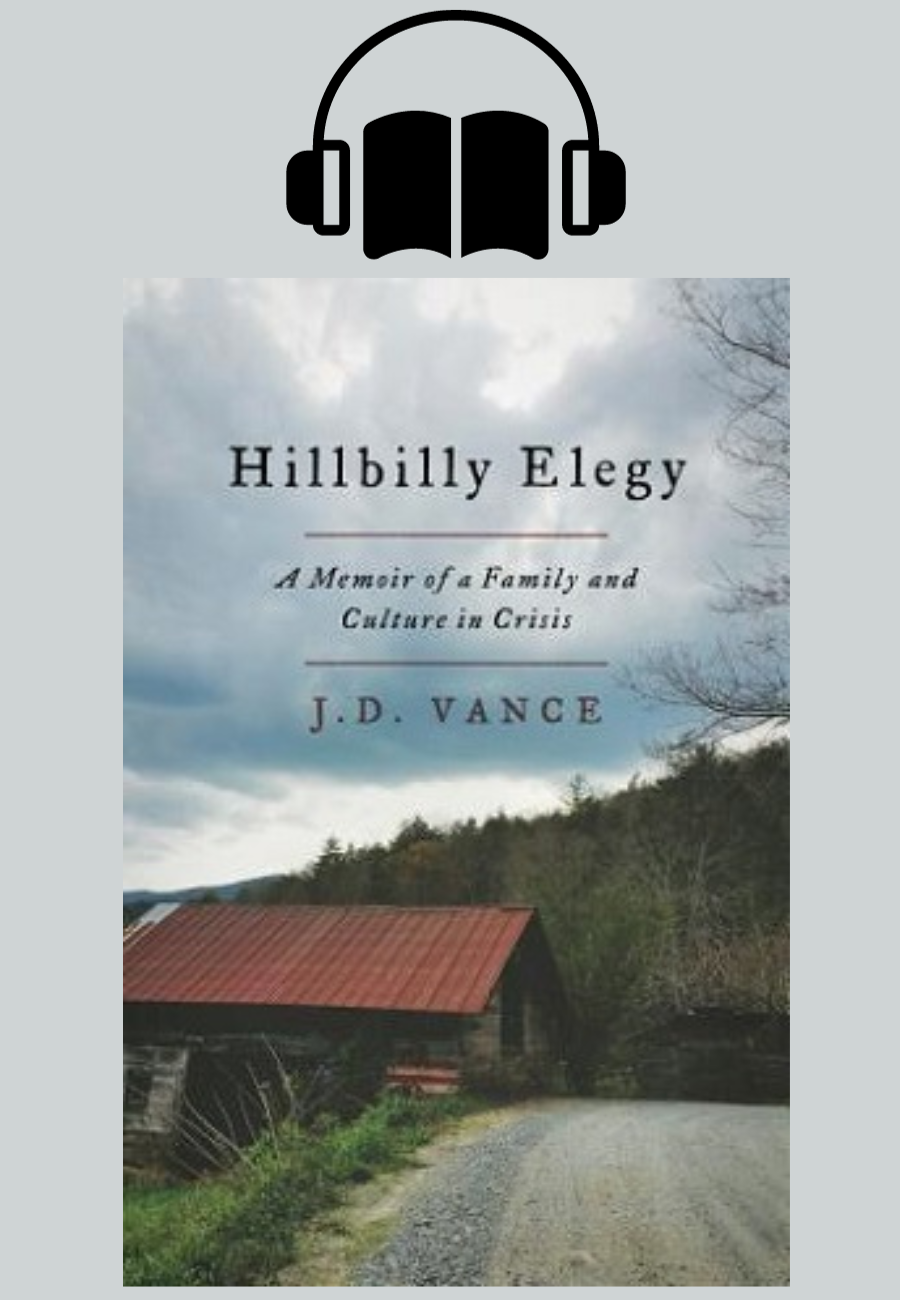
Hillbilly Elegy Audiobooks & Pdf
Summary
J.D. Vance's "Hillbilly Elegy: A Memoir of a Family and Culture in Crisis" recounts his upbringing and departure from an impoverished white working-class community facing severe social and economic challenges. From his tumultuous childhood, including incidents like his drug-addicted mother's threat to kill him, to his escape by joining the Marines and pursuing a law degree at Yale, Vance narrates his remarkable journey away from his dysfunctional roots in the Appalachian Mountains.
He paints a vivid picture of the struggles faced by the 'hillbillies', a term he uses to describe this community, amidst the upheaval caused by deindustrialization. The disappearance of once stable and well-paying jobs has plunged these areas into a cycle of recession, addiction, and poverty. Vance candidly portrays the weight of poverty and addiction that hung around his life from the beginning.
His family's turmoil, marked by his mother's addictions and constant upheavals, exposes a world of instability. Raised intermittently by his alcoholic grandfather and violent grandmother, Vance unflinchingly details their disturbing behavior, depicting a normalization of dysfunctional patterns within his extended family.
Vance not only reflects on personal anecdotes but also delves into broader societal issues corroding the white working class in the US. He highlights a culture of unemployment, welfare dependency, financial recklessness leading to bankruptcy, and a lack of accountability among individuals.
The book gained attention for shedding light on why segments of this community resonated with Donald Trump during the 2016 election. Vance points to a sense of victimhood and a tendency to blame external factors, like foreigners or elites, for their plight. However, some critics find Vance's broader analyses less convincing, citing his conflicting views on American greatness and the lack of heroes alongside his aggressive pursuit of wealth as part of the American Dream.
Moreover, while praising his achievements and resilience, critics find fault in Vance's absolution of societal factors in addiction, his oversimplified criticisms of political parties, and his idealization of certain individuals despite their evident flaws.
Vance breaks the 'hillbilly' code of silence by revealing the community's hidden vices, shedding light on a neglected facet of American society. Yet, his tendency to generalize and selectively use evidence weakens the credibility of his broader societal analysis, making it seem politically biased.
Despite the compelling personal narrative, Vance's broader sociological insights face criticism for being oversimplified and politically charged, potentially aligning him with the Republican party in future political pursuits.

